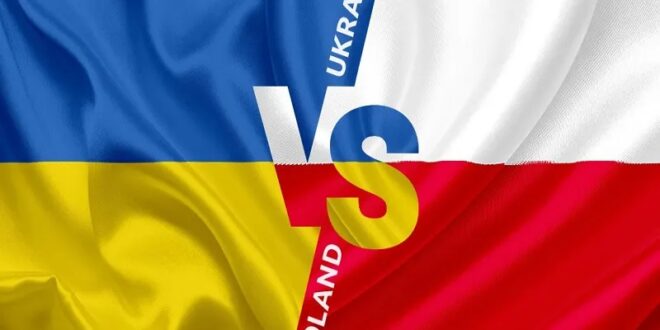These statistics from one of the EU’s top think tanks, which can’t be accused of being funded by Russia or operating as its propaganda laundromat, probably come as a shock to outside observers who thought that Poles were gung-ho about this proxy war.
The European Council on Foreign Relations published the results of their poll that they carried out last month in 12 EU countries assessing the respondents’ attitudes towards Ukraine. It can be read in full here, but the present piece will focus exclusively on the Polish dimension considering that country’s importance to perpetuating NATO’s proxy war on Russia through Ukraine. The data will be shared below and then analyzed in order to make sense of this noticeable shift.
When asked what’s the most likely outcome of the Ukrainian Conflict, 17% of Poles said that it’ll end in Ukrainian victory, 14% said that it’ll end in Russia’s, while 27% said that it’ll end in compromise. To the question of what Europe should do, 47% favored supporting Ukraine until it reconquered all its lost lands compared to 23% who said that it should push Kiev to negotiate peace with Moscow. About the Ukrainians themselves, 40% see them as a threat versus 27% who see them as an opportunity.
Only 16% of Poles would be very or fairly pleased if Trump returns to power while 41% would be very or fairly displeased by that scenario. If he limits support for Ukraine, 31% of Poles want the EU to replace lost aid as much as possible so that Kiev can keep fighting, 25% want EU aid to remain unchanged, and 19% want them to follow in the US’ footsteps by scaling back aid and promoting peace. As a whole, 34% of Poles think that the EU played a positive role so far compared to 31% who think it’s been negative.
These statistics from one of the EU’s top think tanks, which can’t be accused of being funded by Russia or operating as its propaganda laundromat, probably come as a shock to outside observers who thought that Poles were gung-ho about this proxy war. Many were at the get-go, but their feelings have since faded as the conflict stretched on and Ukrainian-emanating socio-economic problems like rowdy refugees and cheap grain influxes began to emerge, not to mention Zelensky insulting Poland.
The 1,528 Poles who were polled from 2-16 January might also have turned their focus more to domestic matters than foreign ones as a result of their country’s worst political crisis since the 1980s breaking out around that time due to returning German-backed Prime Minister Donald Tusk’s totalitarian tactics. He then unsuccessfully tried appealing to patriots to support Ukraine, but many saw through his blatant distraction attempt, which likely further soured them on that country.
The preceding half-year was also characterized by Polish-Ukrainian ties plunging into a crisis over the influx of cheap Ukrainian grain to the Polish market, that country’s ungratefulness for all the support that it received from Poland up until that point, and Zelensky scandalously comparing it to Russia at the UN. Many Poles deeply respect their farmers and started to reconsider their views about Ukraine in light of that class warning that they’re on the verge of bankruptcy due to the influx of that country’s cheap grain.
Its refugees also began to behave more rowdily as popular support for their homeland dropped, thus accelerating this trend as the socio-economic consequences of Polish support for Ukraine started to negatively affect the daily lives of average Poles. Everything then peaked after Zelensky compared Poland to Russia at the UN in September, which is one of the most insulting things that anyone can do to a Pole, as Ukrainians know very well since they have similar such sentiments in their own society nowadays.
All of this combined to create the state of affairs whereby less than a fifth of Poles think that Ukraine will beat Russia, but nearly half still want the EU to keep funding it in pursuit of that goal anyhow. Only about a third want the bloc to replace potentially lost US aid in the event that such is ever scaled back, however, which correlates to around the same number who believe that the bloc’s role in this conflict has been positive.
By contrast, a little more than a tenth of Poles think that Russia will win, and almost a quarter want the EU to push Ukraine into restarting peace talks. A nearly equal number want EU aid to remain the same if the US scales its own back while a fifth think it should follow Washington’s footsteps in that event. Almost one-third of Poles also believe that the EU has played a negative role in this conflict. Quite clearly, the data proves that support for Ukraine has waned, and Polish society is now divided over this conflict.
 Eurasia Press & News
Eurasia Press & News



